ECO KARST - Third ECO KARST training successfully held in Slovenia
18-05-2018
The Training C was held last week (May 7 - May 11, 2018) in Notranjska Regional park, Slovenia. Over 40 participants gathered in Grahovo to work on the preparatory steps for the Action Plan development. The training was a great chance for all participants to strengthen their skills on cross sectoral stakeholder communication in nature protected areas. A more detailed identification of potentials for pro-biodiversity businesses was also performed with the support of the Global Nature Fund team. This was the third of total 4 planned trainings within the capacity building component of the ECO KARST project.
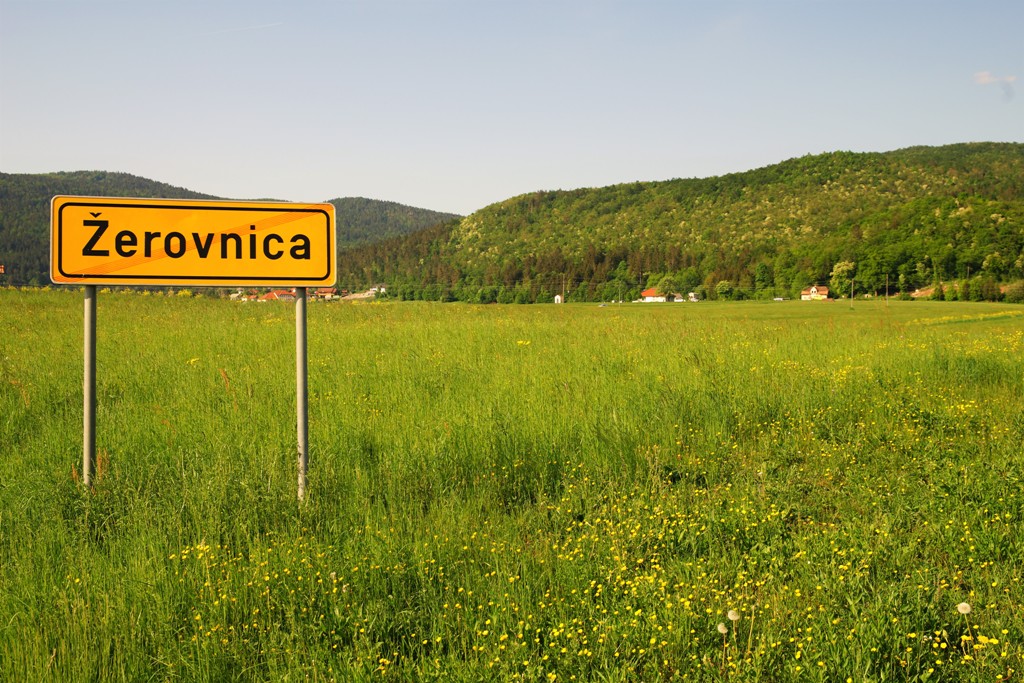
The training officially started with the welcome speech of Notranjska Regional park Director and representative of Municipality of Cerknica, Mr. Matevž Podjed.
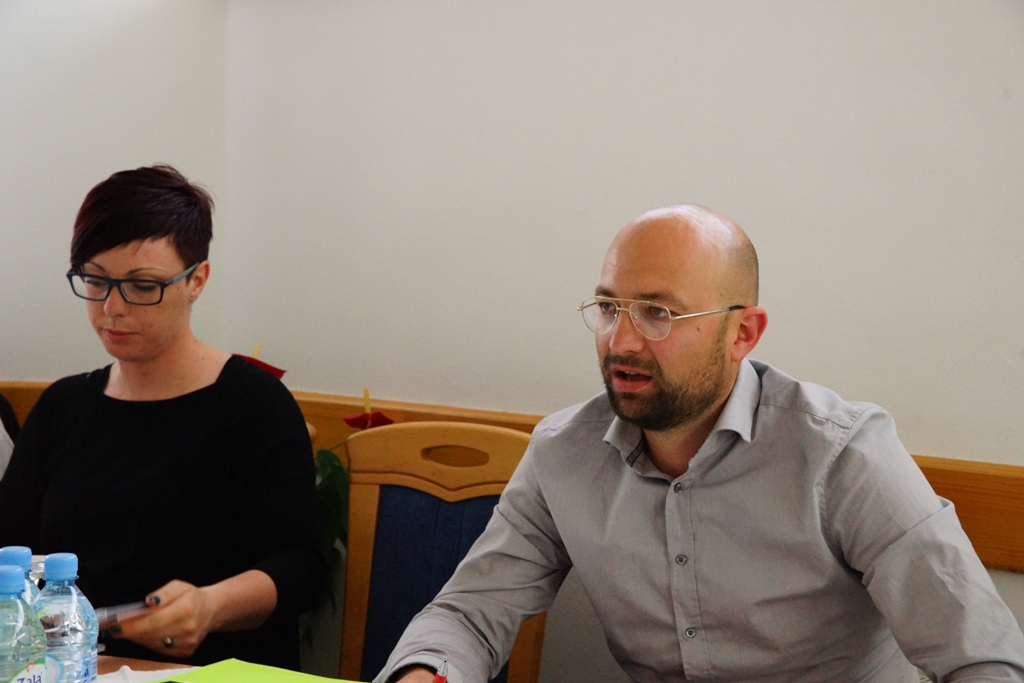
The first part of the training was guided by highly experienced facilitator, Mrs. Vida Ogorelec who introduced all participants in stakeholder communication approaches needed for the effective organization of the workshops scheduled for June, 2018. Thanks to her help, participants were able to design a plan for the first round of workshops in each of the pilot areas. Besides, park representatives assessed the conservation status of ecosystem types and ecosystem services in their regions and shortly presented the maps they produced until now. A special attention during the assessment was given to identification of pro-biodiversity businesses and potentials for their further development.
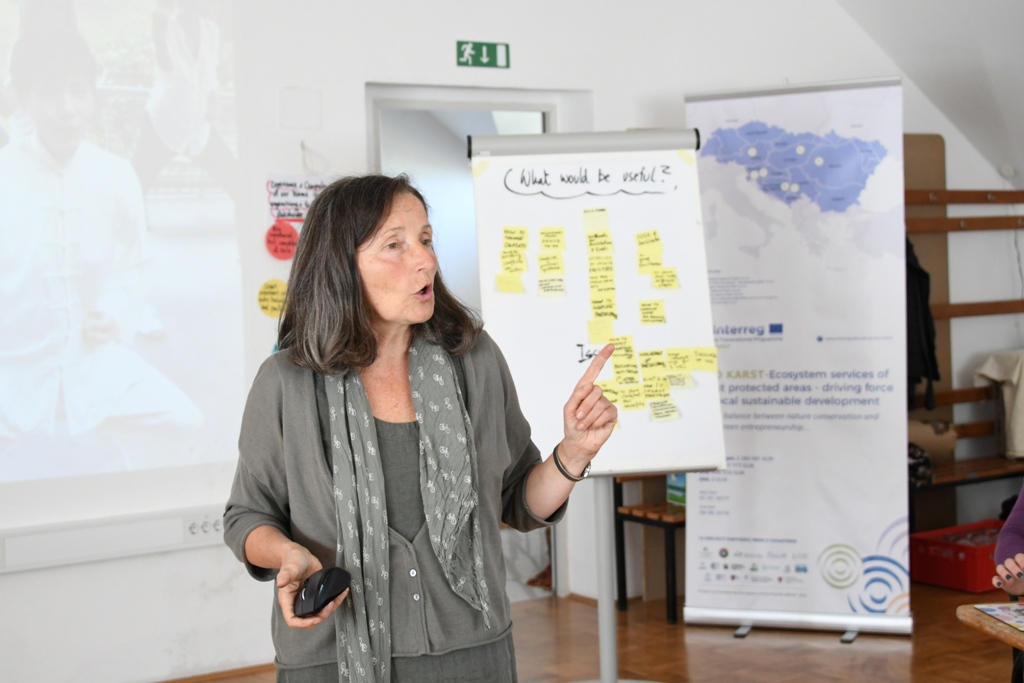
“The training module on stakeholder engagement and facilitating participatory group work had two major objectives: (1) to exchange and reinforce the motivation for involving stakeholders in the action planning process (= the »WHY« question) and (2) to introduce the work of a facilitator, including experiencing some useful facilitation techniques, tools and skills (=the »HOW« question). Both of these objectives had the overall purpose of preparing the 7 pilot teams for the upcoming workshops. The process was built on the learning by doing approach that enabled the participants to be active throughout, while applying the new knowledge to preparing and planning for their own events. The biggest challenge was the limited time available, especially for the size of the group, which didn't allow for enough exchange of ideas and plans. Hopefully this will take place during the coming weeks and months via other means of communication. I feel that as a result of the focused interactive work the teams are highly motivated and aware of the importance of their mission – I wish them the best of luck”, said Mrs. Vida Ogorelec.
The second part of the training was devoted to preparation for the second and third round workshops planned for the period September, 2018 – December, 2018. For the purpose of exercise guided by the Lead partner, participants identified challenges in their pilot areas and set appropriate goals and objectives to address it. In addition, an identification of actions, responsible organizations, required resources, timeframes and priorities necessary for achieving goals and objectives was performed.
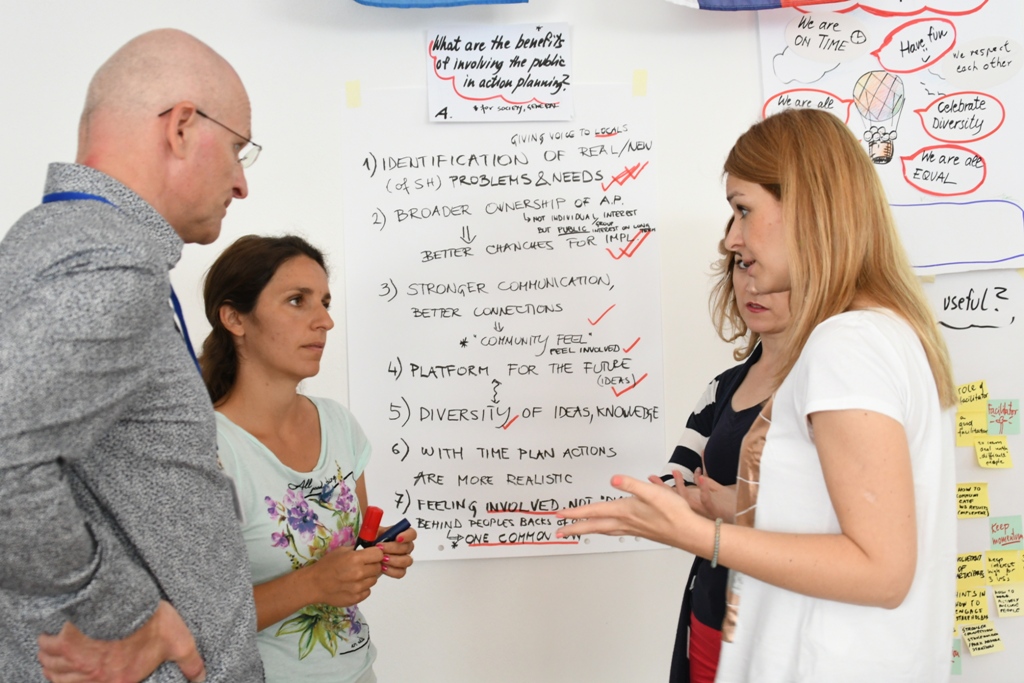
During the Training C, participants had the opportunity to take part in mini field trips guided by NRP representatives. The first trip to Dinaric forests of Menišija was guided by Mr. Miha Krofel, an expert for large carnivors, assistant professor & wildlife researcher at University of Ljubljana. Not even the rain stopped an enthusiastic ECO KARST group to look for the tracks of wolf, bear and lynx as well as to visit the bear’s den. Mr. Krofel demonstrated a wolf tracking by howling which was definitely worth the walking through the forest in the evening hours.
One of the most beautiful sunsets we saw at the Mount Slivnica (highest peak 1114 m above sea level), the most popular hiking spot for locals and tourists. Legend has it that a cave located just below the highest peak was a witches’ den. Here they gathered to cook bad weather and other mischiefs.
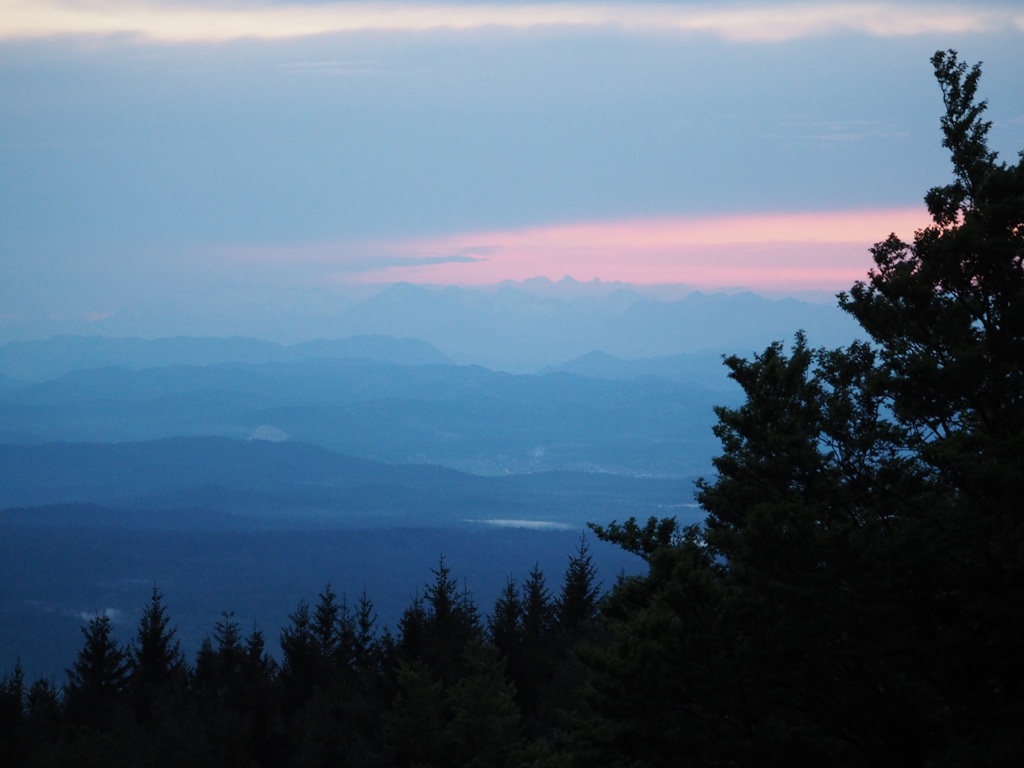
On the last day of the Training C, the ECO KARST team went for a whole-day field trip. Obviously, our first destination was unique and magical Križna jama Cave, a part of the Ramsar site together with the Lake Cerknica and karst valley Rakov Škocjan. Water in Križna jama connects three areas via underground cracks and tunnels. The cave with its stream and 22 underground lakes is home to very rich specialized cave fauna. 45 troglobiontic species rank Križna jama as 4th in the world in terms of biodiversity! For tens of thousands of years the now extinct cave bears used the cave as a retreat. The cave bear skeletons in Vienna's Natural History Museum are made of bones collected in the Križna jama.
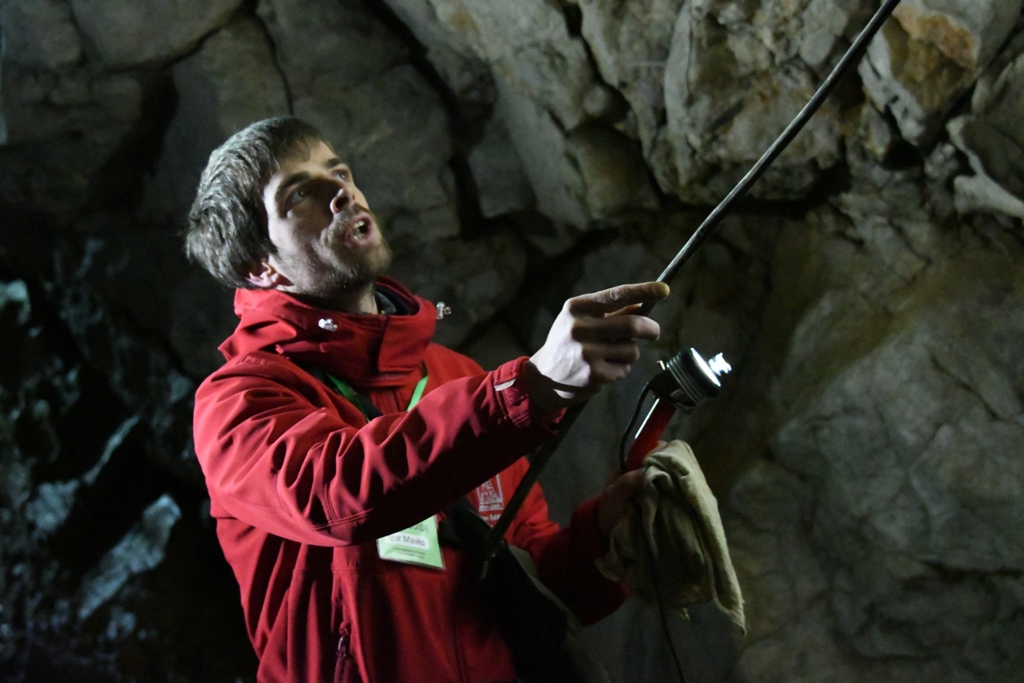
After an amazing experience in Križna jama, we explored one of the largest intermittent lakes in Europe - Lake Cerknica. The lake appears every year on the karst field situated between the Javorniki mountain ridge, the Bloke plateau and Mount Slivnica.
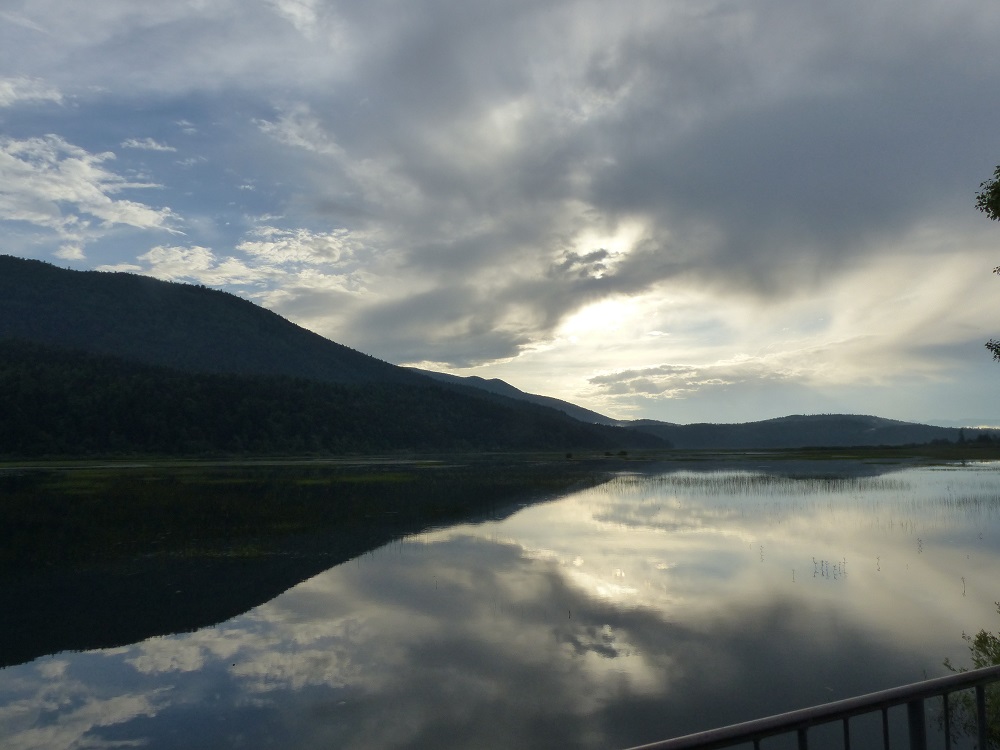
A heavy rain caught the ECO KARST group in Rakov Škocjan valley. The group hiked the educational trail in this picturesque karst valley formed by the sinking and collapsing of a cave ceiling and observed the geological processes that shaped Rakov Škocjan in millions of years. A reward after the hiking on the rain came in the form of a surreal beauty – two natural bridges (Veliki and Mali naravni most).
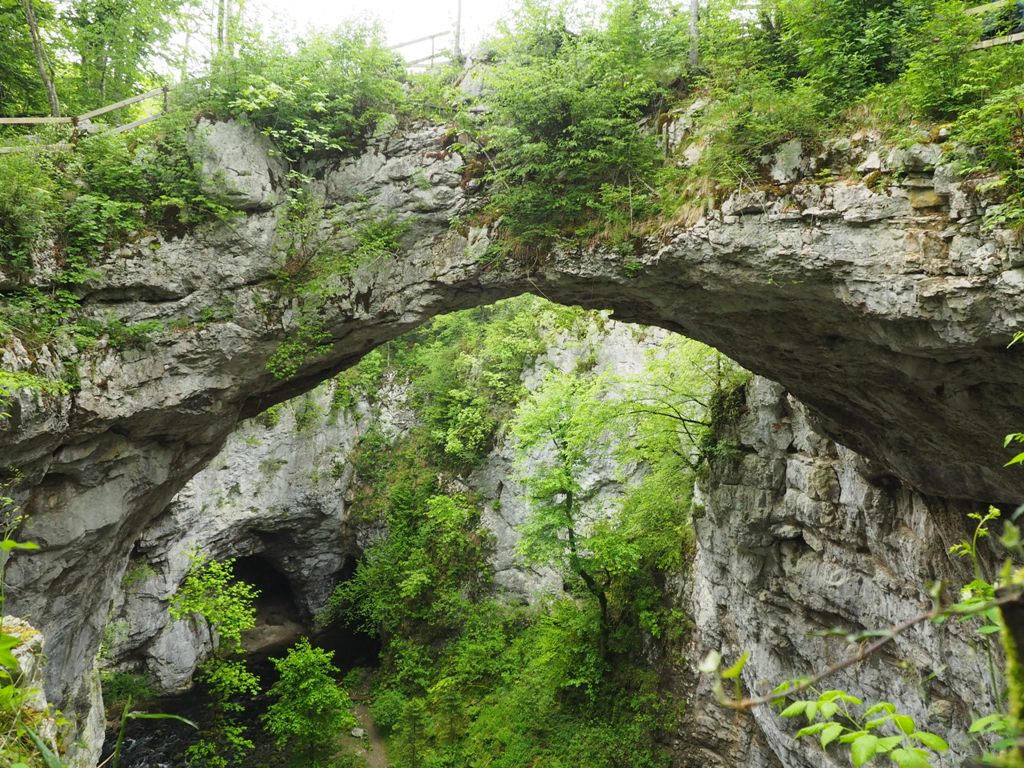
The last destination of this inspiring field trip was a tourist farm Levar where the group had a chance to try local dishes from home-grown ingredients prepared by Jolanda Levar’s traditional recipes.
Participants were very satisfied with the outcomes of the Training C, new skills they gained and concrete steps they set up for the next few months. Everybody was astonished by the natural beauties of Slovenia and enjoyed organized field trips.
ECO KARST project and partners involved express their gratitude to the hosts of the training, Mr. Jošt Stergaršek and Mrs. Manca Černigoj from the Notranjska Regional park for their time and efforts they put in organizing the training and making us feel like at home.
